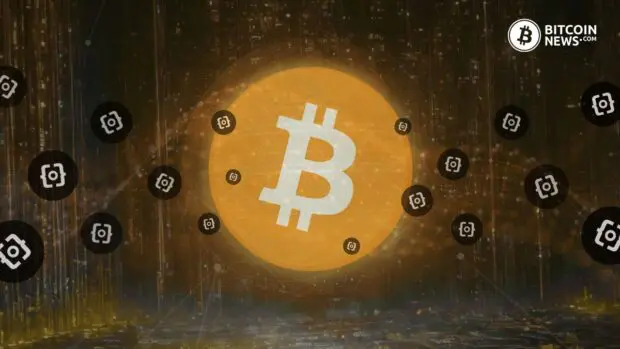This article was originally published on Notion
The Bitcoin network, known for its robust security and efficiency, is now contending with a new challenge: spam transactions driven by profit. Unlike traditional spam, which generally involves low-value or nuisance transactions, this new breed of spam—characterized by Ordinals, Inscriptions, BRC20 tokens and Bitcoin Stamps—is created with a clear profit motive, complicating the issue further.
Related reading: Bitcoin Fees Skyrocket: Community Divided on Ordinals
Ordinals And BRC20 Tokens: Profit-Driven Nature of New Spam
- Ordinals and Inscriptions: Digital collectibles and data attachments have become a profitable venture for NFT creators, sold at a premium. This profit incentive is leading to an increase in these transactions, consuming significant block space.
- BRC20 Tokens: Mimicking the concept of ERC20 shitcoins on Ethereum, these Bitcoin blockchain tokens are created and traded for financial gain, diverting from Bitcoin’s primary purpose and adding unnecessary network load.
- Bitcoin Stamps: A protocol for storing text and image data within Bitcoin transaction outputs, Bitcoin Stamps offer a native Bitcoin solution for data embedding, albeit at a higher transaction cost. These Stamps (Bitcoin Secure Tradeable Art Maintained Securely) are essentially NFTs representing unique digital assets on the Bitcoin blockchain.
Why This Is a Major Concern
- Protocol Exploitation: Bitcoin’s design is intended to limit extra data on the blockchain. Spam transactions exploit code rules to sell data within arbitrary transactions.
- Increased Fees: Higher congestion leads to increased fees, pricing out regular transactions.
- Shift Away from Bitcoin’s Core Purpose: The rise of profit-driven activities challenges Bitcoin’s original intent as a decentralized financial platform.
Imbalance of Incentives: Miners Benefit, Users and Node Operators Bear Costs
Miners profit from higher fees associated with these transactions, while regular users face inflated costs for standard transactions. Node operators are burdened with storing and processing arbitrary data for completely other usage, which never had any consensus from participants. This shift undermines the network’s fairness and incentive balance.
Addressing the Challenge
A recent Twitter conversation underscores the effectiveness of mempool filters in managing spam transactions on the Bitcoin network. This discourse involved key Bitcoin community members and developers, illustrating the real-world implications of mempool filters.
In the conversation, Ben Carman (@benthecarman) expressed his skepticism about the efficacy of spam “filters”. This was followed by Francis Pouliot (@francispouliot_), who requested a 100 sat transaction to a specific address. Rob Hamilton (@Rob1Ham) responded with a transaction hash but, as ndgo (@ndgoHODL) pointed out 10 hours later, the transaction had still not appeared in the mempool, leading to speculation about the transaction’s nature and destination. The reason the transaction did not process is because such small transactions are excluded by the standard Bitcoin Core mempool filters.
This example demonstrates that despite the skepticism, mempool filters can effectively distinguish and manage different types of transactions. Rob Hamilton’s transaction not appearing in the mempool even 24 hours later, despite a clear hash being provided, indicates that mempool filters are functioning in discerning and controlling these transactions.
The goal should be to encourage Bitcoin Core to refine these existing mempool filters further to ensure that such spam transactions are systematically excluded from the mempool. This should help deal with the bulk of spam and improve the network’s efficiency and realign with Bitcoin’s core purpose.
For Node Operators
- Configure Your Node: Set
datacarrier=0 in the bitcoin.conf file of your Bitcoin Core node instance to prevent spam transactions from entering your mempool.
For Miners/Hashers
- Choose a responsible mining pool: Align with mining pools like ocean.xyz that have policies against including spam transactions in blocks.
For Every Mindful Bitcoin Enthusiast
- Raise Your Voice: Voice concerns about profit-driven spam transactions.
- Spread Knowledge: Educate others about the impacts of these transactions.
- Promote Anti-Spam Initiatives: Support projects working to reduce or eliminate spam.
- Debunk Misinformation: Correct false narratives around these activities.
By taking these actions, each member of the Bitcoin community can play a role in combating the new wave of profit-driven spam transactions. It’s a collective effort that requires awareness, proactive measures, and a commitment to the original purpose and functionality of the Bitcoin network.










